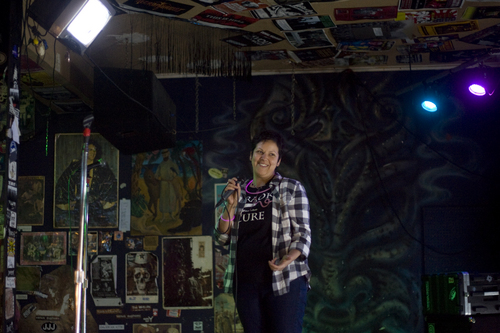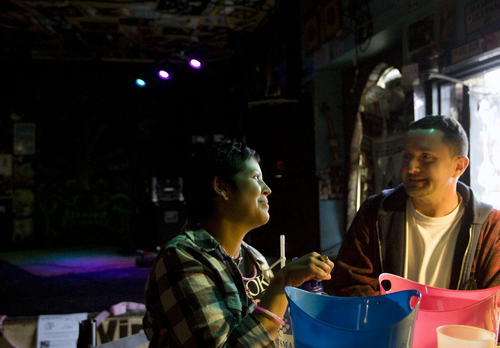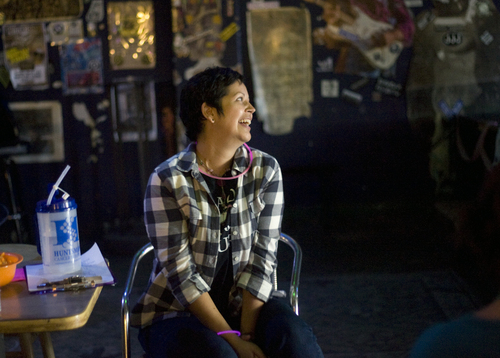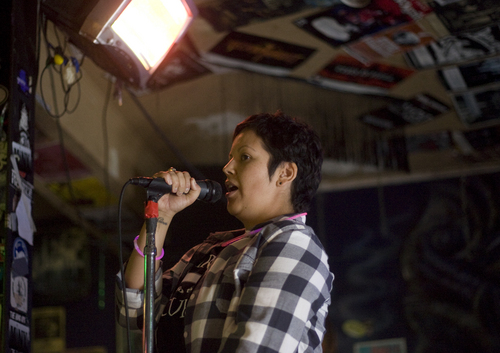This is an archived article that was published on sltrib.com in 2014, and information in the article may be outdated. It is provided only for personal research purposes and may not be reprinted.
Before she died, Beverly Brehl knitted her preschooler a blanket decorated with every superhero emblem along with his own, called "Super Jack." She hoped that when he wrapped it around himself, he would feel her love.
She recorded herself reading bedtime stories and singing to him. She made sure her husband, Jeremy Sundeaus, and her sister knew her values and passed them along: That Jack was to go to college, that he have an open mind, that he forge his own path.
In the end, the 36-year-old University of Utah assistant professor, who died of breast cancer Sunday, didn't finish writing letters of advice to her 3½-year-old son to help him navigate a future without her.
"The letters are at the top of her to-do list," said her sister, Pat Brehl, "but they were also the thing that scared her the most, that idea of having to let go of him and not be there."
The Salt Lake Tribune profiled Brehl in 2012, highlighting her efforts to bring more awareness and funding to aggressive forms of breast cancer, which she said get overlooked during pink-ribbon campaigns that emphasize that cancer detected early is curable.
Brehl's stage IV cancer — an aggressive and hard-to-treat form called triple negative — was found when she was 33 years old, far younger than the recommended age for regular mammograms.
"The frustration for her is that it's almost like some victim-blaming that seems to happen with all of these different breast cancer awareness months," Pat Brehl said. "When you're diagnosed, it doesn't mean you didn't do everything you're supposed to do."
From the time she was diagnosed up until a couple of weeks ago, Brehl was willing to try any treatment to buy more time. An expert in early childhood, she was an assistant professor in family and consumer studies and knew her son's age meant he may not remember her. She continued trying various forms of chemotherapy and radiation, to her liver, legs and hips as the cancer spread, and researched clinical trials she hoped to join.
"Her motivation all along has been her son and she just wanted to try anything that she could," her sister said.
Brehl's doctor, Saundra Buys, medical director of Huntsman's High Risk Breast Cancer Clinic, says despite the interest and money put into treating metastatic breast cancer, doctors and scientists haven't developed the tools to eradicate the microscopic cancer cells that remain after treatment and eventually overtake the body.
Brehl, she said, "was just really, really brave and wanted to live the best that she could despite this cancer. Everyone who worked in the clinic looked forward to seeing her … because of her openness and her enthusiasm about life and just the love she had."
Her colleague and friend, Cheryl Wright, said Brehl kept teaching until last fall, when she learned the cancer had continued to spread.
"A lot of people's memories are of this vibrant, funny, always smiling" woman, Wright said. "She was the most positive, optimistic person. She was going to beat this."
Two days before she died, Brehl learned she had won the U.'s Early Career Teaching Award, a contest among faculty without tenure. In a letter of support, a student wrote she had never been so motivated as she was by Brehl. The student noted that when Brehl announced she was taking a leave, she smiled and promised to try to make it back for their final presentations.
Brehl's friends and family say their job from now on will be to teach Jack about his mother.
"She's left a lot of memories for him and he will, when he is old enough to realize everything, know that his mom was pretty special, very talented, a wonderful person," Wright said. "And he's going to be so proud of that."











